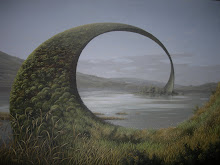Through expressive yet bleak imagery, Richard Brautigan successfully creates a brilliant smear of stories and poems that would seldom be seen anywhere but a San Francisco setting. The inclusion of Washington Square Park throughout the novella as well as its relevance to the cover demonstrates how influential the city’s suffering and beatific atmosphere must have been on his writings. While the flow of the poems throughout the second section of the book is sporadic and consists mostly of sharp imagery and more encompassing allusions such as in the Pill Versus the Springhill Mining Disaster, the interplay of titles with storylines in Trout Fishing in America makes it a very powerful book in relation to beat issues that were going on at that time. For the duration of the poetry section of the novel, absurdity within the prose makes every topic equal in terms of critical analysis, Baudelaire at a Tigers Yankees game smoking Opium or a beautiful woman’s body described like a trout fishing scene. His unpredictable choice of theme and setting allows for a broken, yet altogether progressive set of short stories that all in some way relate to the ridiculous idea of fishing for trout in America.
The way that Brautigan brings his poems together in some sort of meaningful way is through recurring characters such as Baudelaire and themes like San Francisco winos, which serve as the base of many poems in the Pill Versus. There are many abstract elements to his writing, and his inclusion of random characters or settings is astute enough to create a confused picture for the reader of his poetry. The way certain anachronistic images are put together, then beautifully decorated with late 60’s drug references and sex and entertainment culture is indicative of his time spent in North Beach, as well as throughout San Francisco. His form of expression seems very malleable, and exposure to a lot of the things San Francisco presents itself with seemed to make some waves in his cryptic fantasy-laden prose. From the glorification of winos resting on top of landmark hills, to Trout Fishing in America Shorty first hitting the scene in North Beach, Brautigan clearly illustrates his interest and love for the city by the Bay through multidimensional and recurring characters and settings. Washington Square Park is mentioned innumerable amounts throughout, even despite when it is being discussed as the setting of the cover picture, it is vividly included in the flow of wino stumbling stories as a crucial epicenter for old Italian wash ups. His controversial and offensive approach to poetry may hit some soft spots, but it is a necessary sacrifice for the overall good that sensitive subjects, when exploited, can do for the reader. It seems that the point behind creating
Trout Fishing in America brings about larger themes and issues because of the sheer length of the individual stories, not to mention the satirical dark humor present throughout the whole thing. Spastic and randomized humor is another quality to this book that may be a major factor in its popularity seeing as how many shows nowadays on network Television aim at random references and characters for their comical value. I laughed the hardest at some of the seemingly least humorous poems like Education, which quickly clips together images of a woman’s children as hornets in a mud nest with a Great Sparrow father dragging a red wagon between them. The hornet simile would never have made such a comical impact unless there were five hundred children that knew nothing but the red wagon and the Great Sparrow. This is a pretty unique example, but many things that were throw in as random pictures such as “The Mayor of The Twentieth Century” who dresses literally like an image of Trout Fishing in America as a disguise also held some of the most laughable aspects of the book itself. In essence, the fact that much of the writing within is a sort of glorious mocking of how the title of the book would relate to the content is successful in many ways. The reader focuses more on the diversity of content than its relationship to the title, which is why Brautigan indefinitely creates a critical, yet beautiful take on literature and poetry. Although he mocks the relevance in the title to the book itself, the poem titles intertwine in amazing ways to create a flow within the second section of the novel. . His style is advanced for its time, and poems such as (All Watched Over By Machines Of Loving Grace) clearly demonstrate how forward thinking his content is. The larger issues present themselves in many of Brautigan’s poems, and even the abstract imagery helps throughout the ones mentioned.
In summation the politics of San Francisco culture is what Brautigan does best through the repeated use of characters like Baudelaire and Trout Fishing in America Shorty as well as amazingly vivid diction. Everything about the themes and their transitions, the metaphoric imagery and continuous references to San Francisco impose upon the reader a certain mindset that I’m sure isn’t always readily accepted. It is very educational as a transgressor of boundaries whether societal or literary, and sometimes it is necessary for there to be some original discomfort for the entire prose is gained from. Upon rereading I found many poems to contain relevancies not originally recognized, and noticed the amount that Washington Square Park is mentioned in particular as well as North Beach as the district and grounds for “old Italian” interactions. Eventually Brautigan fully established his role as a critical San Francisco writer, and Pacific Northwest thinker.
Subscribe to:
Post Comments (Atom)

No comments:
Post a Comment